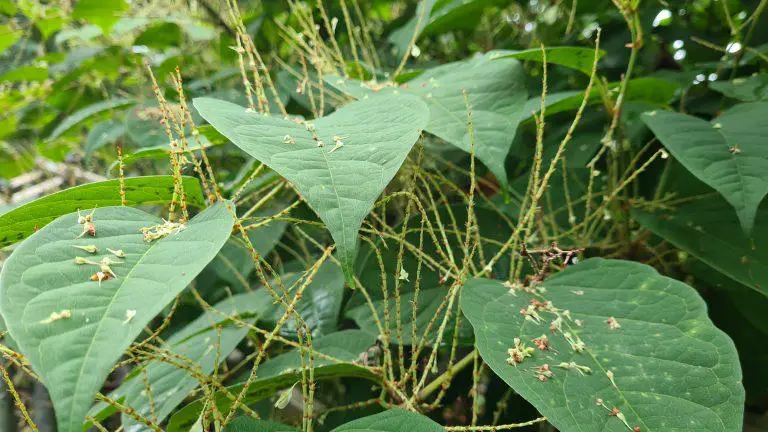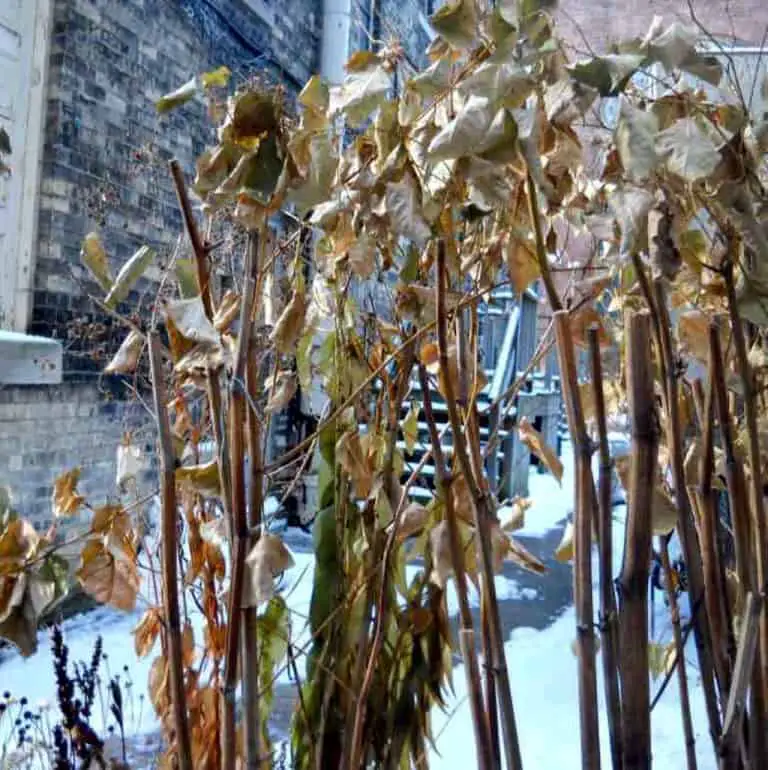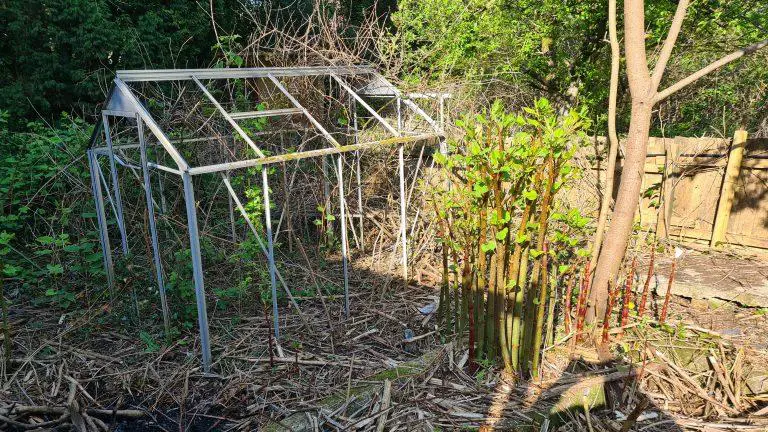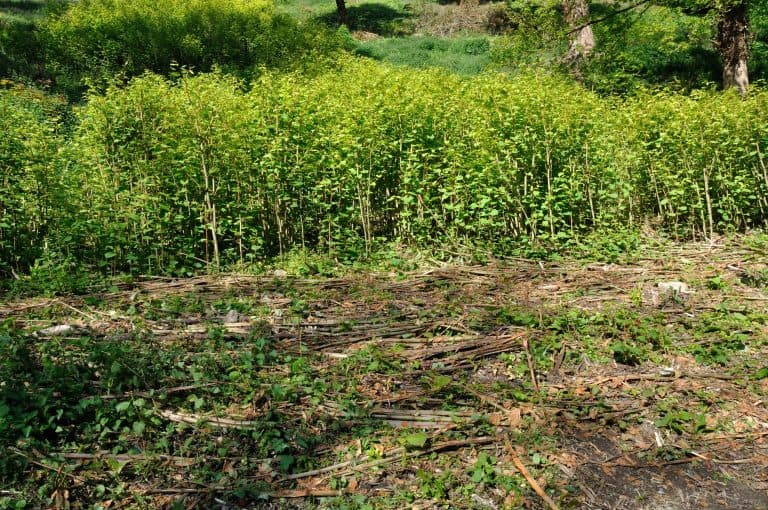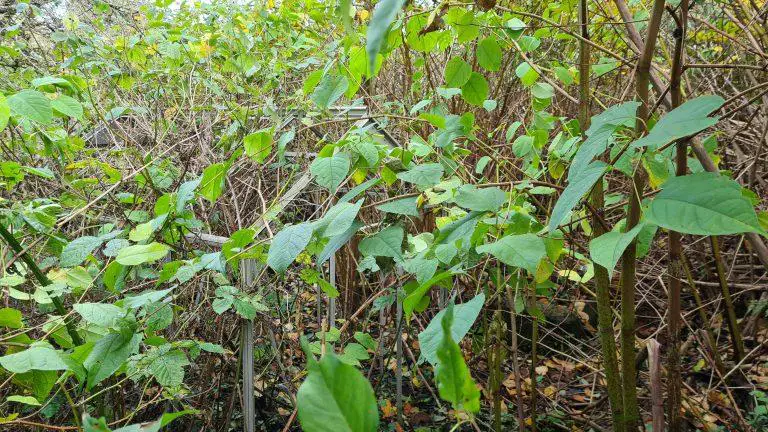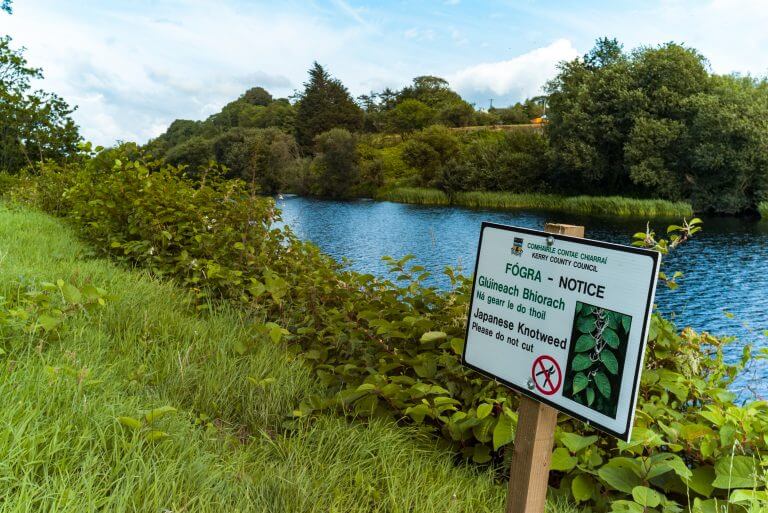Japanese knotweed is a type of ornamental weed plant that often spreads like wildfire if left unattended. A Japanese knotweed infestation however small should be a cause for alarm to any homeowner because of the vast damage resultant from the presence of this weed plant.
This plant is quite dominant and can easily strangle other plants in your garden causing their extermination. Japanese knotweed in your garden is a menace to your other plants and dominates a garden to the point that nothing worthwhile can grow.
The law prescribes the weed plant as a controlled plant its disposal must be done in accordance with the legal requirements set in place by the relevant local authorities.
Notably, this weed plant is non-discriminatory when it comes to an area of growth including your precious garden. As a matter of fact, Japanese knotweed can literally withstand any weather condition. Japanese knotweed in your garden is as destructive as any infestation elsewhere.
To understand the repercussions of having a knotweed infestation in your garden, the following section will explain in detail this issue:
Legal perspective
Legally speaking, it is not against the law to have Japanese knotweed growing in your garden. No one will place any legal culpability whether criminal or civil for having the plant growing in the garden.
However, a duty of care exists as regards the spread of the knotweed to adjacent neighbouring properties. Every person has the right to have quiet and peaceful enjoyment of their property that is free of any interference whatsoever.
Therefore, if you cause or allow the knotweed to spread to your neighbours’ lands, then legal liability can result as a consequence.
For instance, when the knotweed attacks the lands adjacent, the homeowners of such property can bring a private nuisance claim against you.
Such a claim basically highlights that there is an infringement of the right to use and/or access private property occasioned by the actions of another person.
Notably, civil claims often attract monetary compensation as an award for the damage that has resulted so that the affected party is put into the position they were in prior to the damaging event.
Smith Vs Kline case
There are numerous cases where allowing Japanese knotweed in your garden to spread has led to successful legal action; for instance, the case of Smith vs. Kline has set the precedence that allowing the knotweed infestation attracts civil liability that should be settled by monetary compensation.
In addition, if you cause or allow the Japanese knotweed in your garden to grow elsewhere, say, in the wild, this act is criminally culpable and can attract hefty fines and/or a jail term as the law may prescribe.
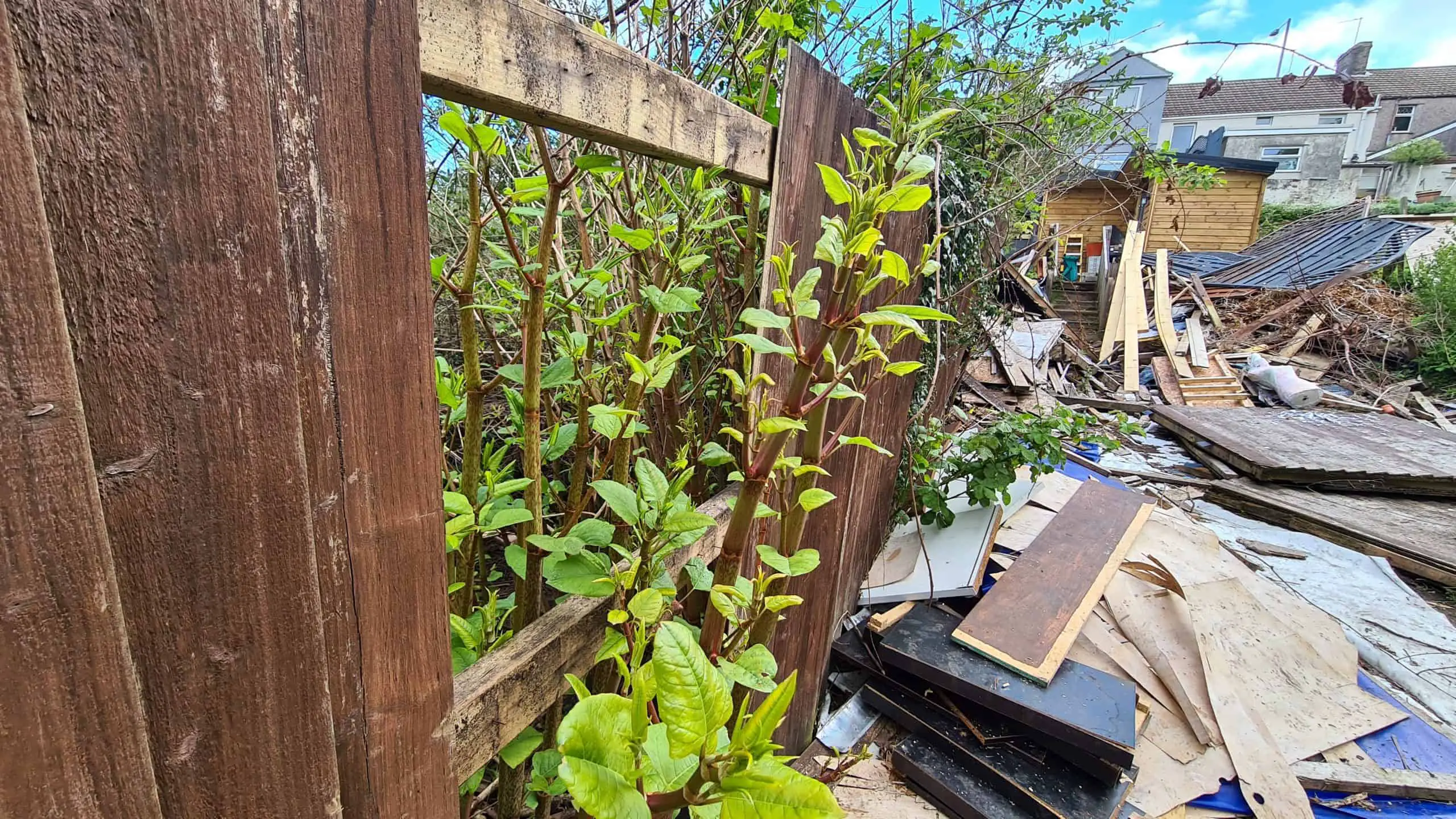
Conducting a survey
As discussed above, it is not illegal to have Japanese knotweed in your garden but it is in your best interests if you take reasonable measures to prevent the spread of this weed. The more the knotweed stays in your land, the more developed it becomes and the harder to eradicate.
Therefore, to be on the safe side, you should make haste and conduct a survey on the knotweed infestation that is present on your land.
The purpose of such a survey will be to help you identify the severity of the kind of infestation that you are facing and secondly the proximity of the knotweed infestation to your house.
Understanding the severity of the weed plant is important because it will help you choose the right treatment mechanism to get rid of the knotweed infestation. Equally, it will assist you in knowing the type of urgency needed to counterattack the weed plant infestation.
The second part of knowing the proximity of the weed plant to your house is important for two reasons;
Effect on the value of property
The closer the weed is to your house, the more likely it is to cause depreciation on the value of the property because the damage will be occasioned easily.
Any contact of the Japanese knotweed with the structure of a building is bad news since the resulting damage will be unmatched unless you treat the knotweed infestation as soon as possible.
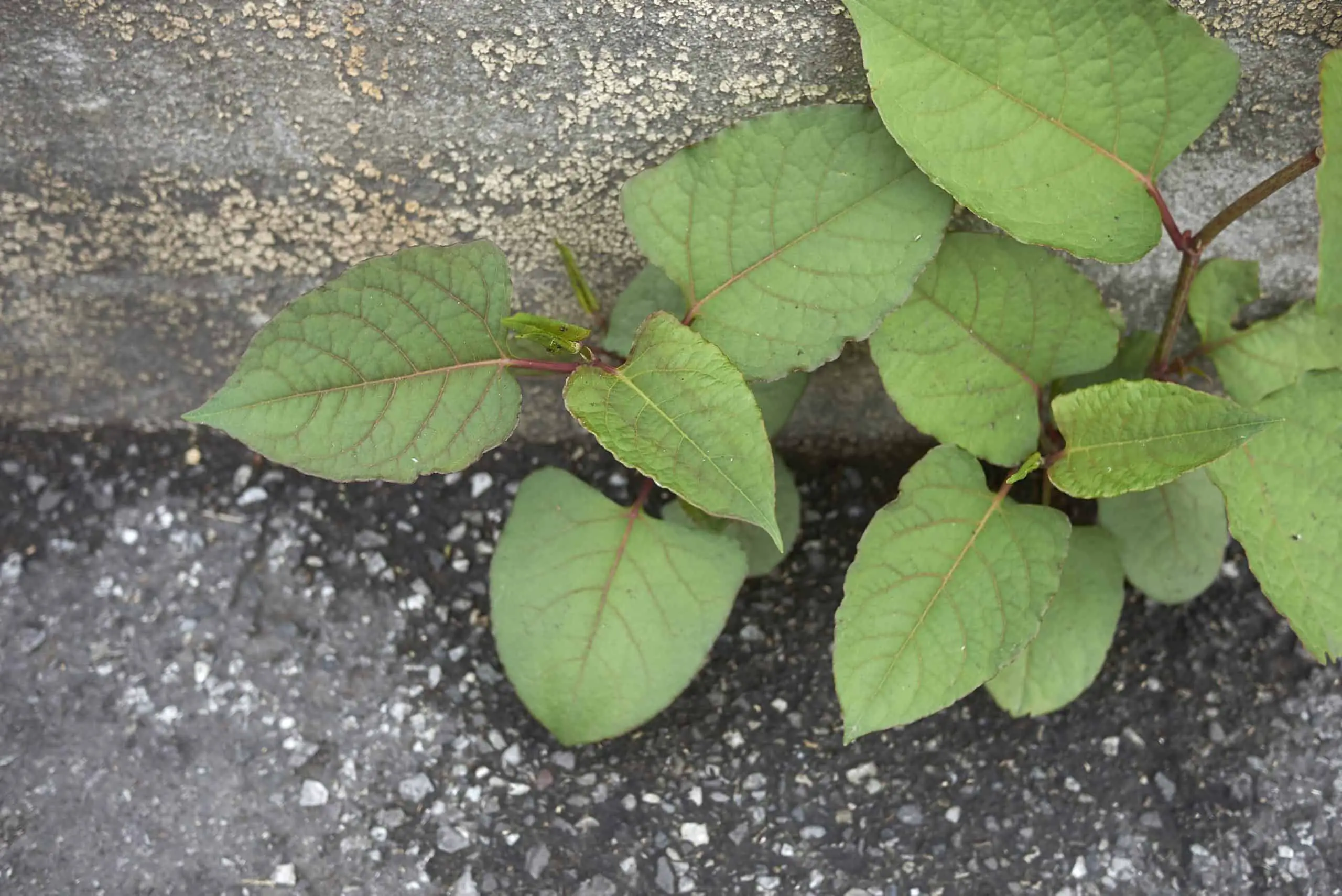
Lending from mortgagers
Mortgage lenders often refuse to lend money, especially where the security to be offered is a property that is under the infestation of Japanese knotweed because they consider the presence of the weed plant to be of high risk to the sustainability of the building, therefore, putting their interests at a risk.
Engage professionals
Getting rid of the Japanese knotweed is not easy and definitely not a one-man’s job unless the infestation is minimal in nature. Although it is not compulsory to remove the knotweed from your garden, doing so, however, will be to your advantage.
The weed plant can cause unprecedented damage to your property, the environment and biological diversity altogether. Further, taking into account the responsibility that you are likely to bear once the knotweed spreads to your neighbours, treating the weed plant will be the best choice as far as your best interests are concerned.
This is the reason why you need to engage professionals who can help you to treat the knotweed infestation. Professionals will advise you accordingly on the costs that it will take to completely eradicate the knotweed from your property. Secondly, professionals will give you an insurance-backed guarantee when it comes to treating the weed plant.
This guarantee is important because you can use it to leverage on getting loans from mortgage lenders whenever you need financial assistance.
In addition, if you intend to transfer the property to another person through a sale, you can rest assured that you will not be subjected to a future claim for compensation because of a knotweed infestation that was not treated or revealed to the buyer.
Finally, engaging professionals will do you good in ensuring that you maintain the value of your property in accordance with the market rates of such property.
Remember, the longer the weed plant occupies your garden, the more damage it is likely to cause to your house and this has a negative impact on the value of the house in the future date.
Want to know more about removing Japanese Knotweed?
Knotweed Removal aims to provide the most up-to-date information, help and advice for YOU to make informed decisions. If you are unsure or uncertain about how to proceed, please reach out to us and we will gladly come back and advise you as best we can.
Governmental advice can be found here and the UK law covering the removal of Japanese Knotweed as stated under the Wildlife and Countryside Act 1981 can be found here.
The best means to contact us is via our email – hello@knotweedremoval.tips
Do not forget we have a library of blogs covering many areas relevant to Japanese Knotweed, our free downloadable How-to Guides and Product Reviews on the latest methods being employed to eradicate or remove Japanese Knotweed.
Knotweed Removal, UK

